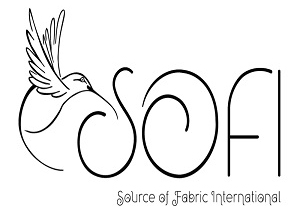A Handbook for Wholesale Fabric Suppliers on Adopting Sustainable Fabrics
Sustainable fabrics are increasingly popular in today’s eco-conscious society. Wholesale fabric distributors and suppliers are adjusting to the growing demand for eco-friendly options from businesses and consumers. This article examines the benefits of sustainable fabrics and how fabric wholesale businesses can leverage this trend to enhance their offerings and increase website traffic.
Understanding Sustainable Fabrics
Sustainable fabrics are made in ways that minimize environmental harm. These textiles often use non-toxic dyes and production methods, are made from renewable materials, and consume less water and energy. Common examples include hemp, recycled polyester, Tencel, and organic cotton.
Organic Cotton: Grown without artificial fertilizers or pesticides, organic cotton benefits both farmers and the environment. It uses less water than traditional cotton, making it a popular choice among eco-conscious consumers.
Tencel: Made from responsibly sourced wood pulp, Tencel uses a closed-loop process that recycles solvents and water. Biodegradable and soft, it suits various clothing and home textile applications.
Hemp: One of the earliest cultivated fibers, hemp grows without pesticides and with minimal water. Its durability and biodegradability make it an excellent option for eco-friendly fabric wholesale.
Recycled Polyester: Derived from used plastic bottles, recycled polyester retains the strength and versatility of conventional polyester while helping reduce landfill waste.
Benefits of Sustainable Fabrics
Environmental Impact: Sustainable fabrics significantly lower the ecological footprint of textile production. By sourcing materials that require fewer resources and produce less waste, fabric suppliers can help protect the environment.
Market Demand: As environmental concerns grow, consumers increasingly seek sustainable products. Wholesale fabric providers can attract a broader clientele by offering eco-friendly options, tapping into a profitable market segment.
Brand Loyalty: Companies prioritizing sustainability often experience increased brand loyalty. Retailers and designers collaborating with eco-conscious fabric suppliers can enhance their reputations, leading to higher sales and repeat business.
Regulatory Compliance: Sourcing sustainable materials can help businesses meet future regulations and standards as governments worldwide implement stricter sustainability policies.
Promoting Sustainable Fabrics as a Wholesale Supplier
Diverse Product Range: Ensure your website offers a wide selection of eco-friendly textiles to attract more visitors. Providing options like hemp, Tencel, organic cotton, and recycled materials allows you to meet diverse consumer needs.
Educational Content: Create blog posts, articles, or videos about the benefits of sustainable fabrics and their production processes. This content can improve your website’s SEO and draw in more eco-conscious customers.
Collaborate with Designers: Partner with fashion designers focused on sustainability. Highlight their collections on your website to showcase the versatility and appeal of sustainable fabrics, attracting their audience to your platform.
Transparent Supply Chain: Emphasize the transparency of your sourcing and production processes. Providing detailed information can enhance consumer trust and encourage purchases.
Sustainability Certifications: Offer fabrics certified by reputable organizations like OEKO-TEX or GOTS (Global Organic Textile Standard). Display these certifications prominently on your website to reassure customers of your product’s quality and sustainability.
Active Social Media Presence: Use social media to promote your sustainable fabric line. Share images, customer testimonials, and success stories. Engaging content can improve brand visibility and drive traffic to your website.
The Future of Sustainable Fabrics in Wholesale
As we progress through the 21st century, the importance of sustainability in textiles will continue to grow. Wholesale fabric distributors who adapt to this trend will lead the charge in transforming the fabric industry. By offering sustainable solutions, educating consumers, and building a strong online presence, fabric wholesale businesses can enhance their relevance in a competitive market.
Conclusion
The shift toward sustainable fabrics is not just a trend; it is a vital evolution in the textile industry. Wholesale fabric suppliers have the opportunity to lead this change by offering a diverse range of eco-friendly materials, creating educational resources, and engaging effectively with their audience. Embracing sustainability benefits the environment and drives more traffic and sales to your website. Investing in sustainable fabrics is an investment in the future of both your business and the planet. For those looking to enhance their offerings, fabric printing services can help showcase sustainable designs and attract eco-conscious consumers.


